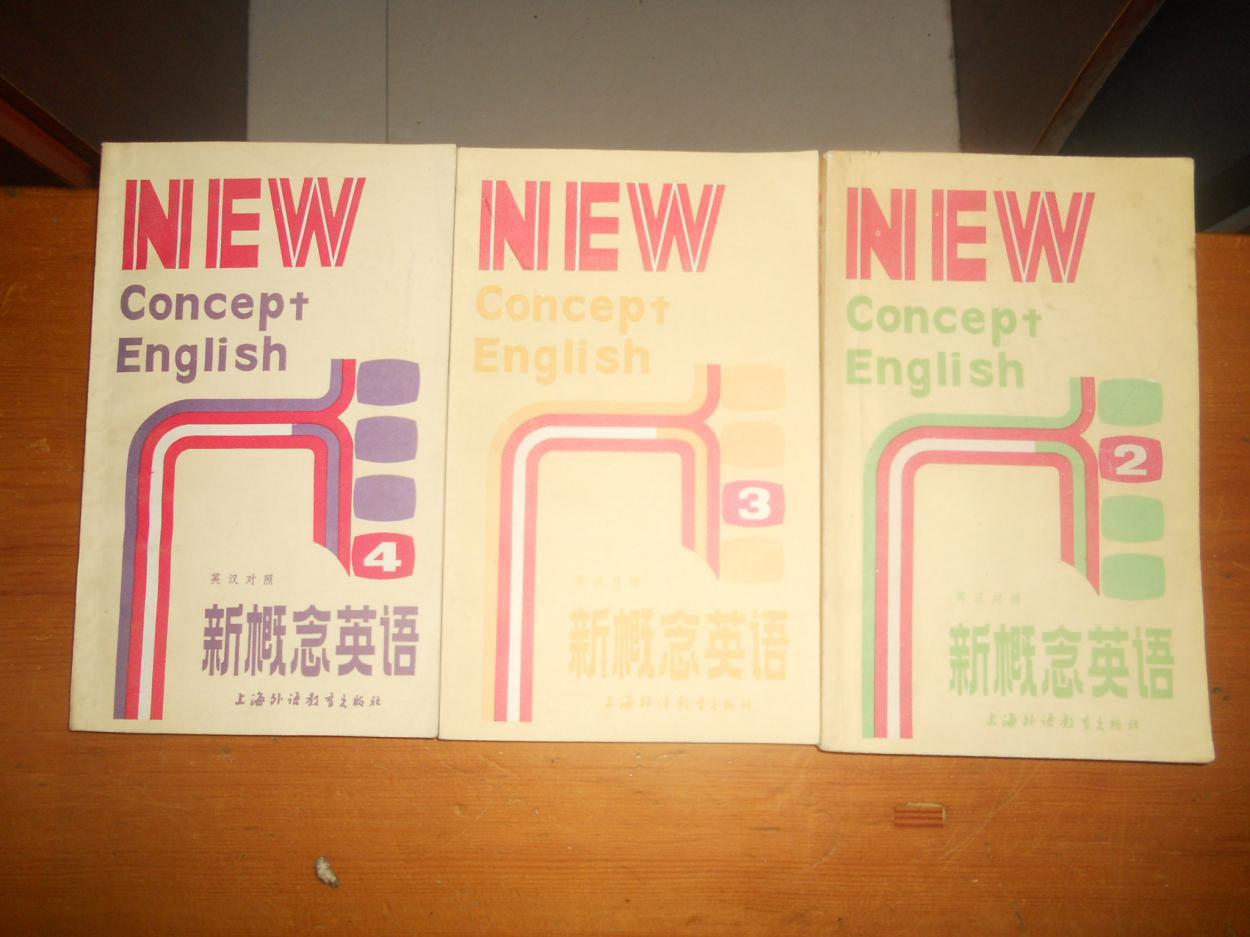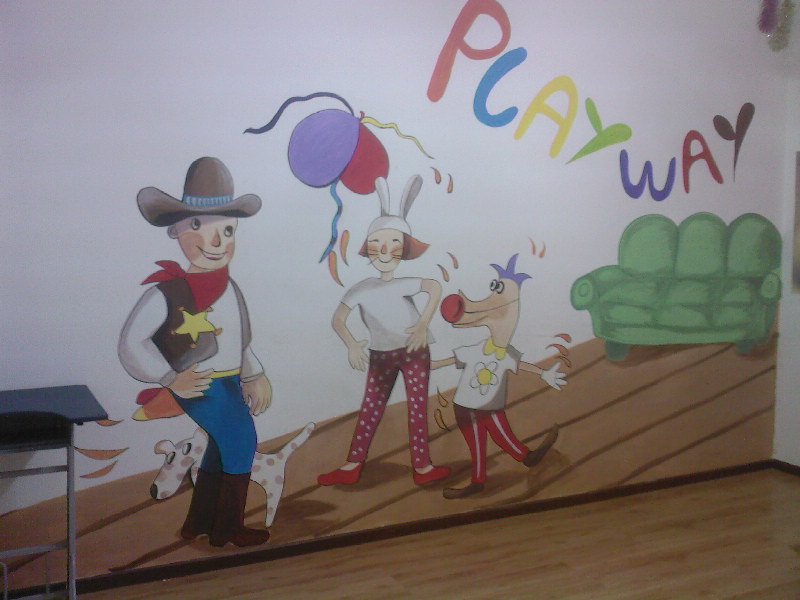 返回
教育头条
返回
教育头条

有关票已售完的新概念英语句型整理
新概念英语学习,下面小编整理了一些关于票已售完的英语句型整理,分享给大家,下面让我们一起来学习吧,希望能给同学们带来帮助,相信自己可以的,加油!
Sold out 票已售完
First listen and then answer the question.
When will the writer see the play?
'The play may begin at any moment,' I said.
'It may have begun already,' Susan answered.
Ihurried to the ticket office. 'May I have two tickets please?' I asked.
'I'm sorry, we've sold out,' the girl said.
'What a pity!' Susan exclaimed.
Just then, a man hurried to the ticket office.
'Can I return these two tickets?' he asked.
'Certainly,' the girl said.
Iwent back to the ticket office at once.
'Could I have those two tickets please?' I asked.
'Certainly,' the girl said, 'but they're for next Wednesday's performance.Do you still want them?'
'I might as well have them,' I said sadly.
New words and expressions 生词和短语
hurryv. 匆忙
ticket office 售票处
pityn. 令人遗憾的事
exclaimv. 大声说
returnv. 退回
sadlyadv. 悲哀地,丧气地
参考译文
“剧马上就要开演了,”我说。
“也许已经开演了呢,”苏珊回答说。
我匆匆赶到售票处,问:“我可以买两张票吗?”
“对不起,票已售完。”那位姑娘说。
“真可惜!”苏珊大声说。
正在这时,一个男子匆匆奔向售票处。
“我可以退掉这两张票吗?”他问。
“当然可以,”那姑娘说。
我马上又回到售票处。
“我可以买那两张票吗?”我问。
“当然可以,不过这两张票是下星期三的,您是否还要呢?”
“我还是买下的好,”我垂头丧气地说。
【学习笔记】
【New words and expressions】生词和短语
hurry v.匆忙
in a hurry(n.) :匆忙
If you are not in a hurry.如果你不急(时间、动作上的)
If you are not busy.如果你不忙(行为上的)
in no hurry(n.) :不匆忙
I am in no hurry.我不急
hurry up(v.) :快点
go to :去
hurry to :匆匆忙忙地去
He goes to school.=He hurries to school.
come in :进来
hurry in :匆匆忙忙地进来
go out :出去
hurry out :匆匆忙忙地出去
ticket office售票处
pity n.令人遗憾的事
pity(n.)
What a pity!真遗憾!
It is a pity.
It is a pity to be grownup. (it做形式主语)
It is a pity to steal abicycle.
I am sorry(a.).我感到很遗憾.
I am sorry to hear that.听到这个消息我很遗憾
注意sorry与pity词性上的区别
exclaim v.大声说
shout :大声喊=cry,call out
return v.退回
return to :回来 return to China/Beijing回到/北京 return to you退回你
return money :还钱=pay back,repay
sadly adv.悲哀地,丧气地
涵盖了所有悲哀
【Text】
【课文讲解】
at any moment :在任何时候,随时
at the moment :=now
at that moment :=just then就在那时
I will help you at any time.我随时都会帮你
may 动词原形“可能”
may (must,can't) have done……对过去的推测
must,can't,may 动词原形,表示对现在、未来的推测
must :一定,很可能She must be a model.
may :有可能 She may be a model.
can't :不可能 She can't be a model.
Shemust(may,can't) have been a model.
I must havewatched TV.
I may have watchedTV.
I can't havewatched TV.
I hurried to the ticket office.匆忙地
May I do...?我可以吗?(用“may”表示“我可以吗?” ,只能与一、人称相连)
have是活跃的词,可以指任何的意思.
have coffee :喝咖啡
have ticket :买票(习惯用法)
I'll have/take sth.我买...(一般不用“buy” ,习惯用法)
sell out :卖完了
what a pity!真令人遗憾!
Can(May) I...?我可以...吗?
Can you...?你可以...吗?(第二人称不能用“may”来表示“你可以....吗?” ,只能用“can you....?” )
Could I...?我现在可以...吗?(在问句中更委婉的说法,比can I更礼貌些)
they指tickets
for next Wednesday's performance
用名词所有格来取代时间: “...时间的”
用介词for,起修饰作用
ticket for 事情

ticket to 地点
May I have a ticket to Tianjing?
May I have a ticket forthe sports meeting?
May I have a ticket ? (英文中的问句,常常起礼貌作用)
May I have your name?比“What’s your name?”更有礼貌些
still :还……可以和任意时态连用
still, yet……都和完成时态连用(原先认为)
want them[wCnWem]注意连读
might as well,may as well 动词原形, “还是...好” (无可奈何)
had better : “好” 动词原形(积极心态)
I might as well take the umbrella with me.
共有的概念“推测”
不在于must,may,can't是什么时态,而在于后面加的是原形还是have done.
加原形是对现在的推测,加have done对过去的推测.
may :⑴推测“可能”
⑵“可以” May I do sth.?我可以做某事吗?
⑶may,might(can,could)对语气的强弱
I.除了“might” “could”是“may” “can”的过去式的概念外
II.在表达“可以...吗?”时,可以用“might” “could”替换“may” “can” ,而区别在于语气上更委婉些
III.在表示“推测”句型中,并不用“might” “could”来表示对过去的推测,只能是“推测”的可能性比“may” “can”更小些的意思, must->may->might->can’t(推测的可能性语气下降)
may as well=might as well “还是...好”
上述所讲是对现在和未来的推测,对过去的推测要用虚拟语气
Sold out 票已售完
First listen and then answer the question.
When will the writer see the play?
'The play may begin at any moment,' I said.
'It may have begun already,' Susan answered.
Ihurried to the ticket office. 'May I have two tickets please?' I asked.
'I'm sorry, we've sold out,' the girl said.
'What a pity!' Susan exclaimed.
Just then, a man hurried to the ticket office.
'Can I return these two tickets?' he asked.
'Certainly,' the girl said.
Iwent back to the ticket office at once.
'Could I have those two tickets please?' I asked.
'Certainly,' the girl said, 'but they're for next Wednesday's performance.Do you still want them?'
'I might as well have them,' I said sadly.
New words and expressions 生词和短语
hurryv. 匆忙
ticket office 售票处
pityn. 令人遗憾的事
exclaimv. 大声说
returnv. 退回
sadlyadv. 悲哀地,丧气地
参考译文
“剧马上就要开演了,”我说。
“也许已经开演了呢,”苏珊回答说。
我匆匆赶到售票处,问:“我可以买两张票吗?”
“对不起,票已售完。”那位姑娘说。
“真可惜!”苏珊大声说。
正在这时,一个男子匆匆奔向售票处。
“我可以退掉这两张票吗?”他问。
“当然可以,”那姑娘说。
我马上又回到售票处。
“我可以买那两张票吗?”我问。
“当然可以,不过这两张票是下星期三的,您是否还要呢?”
“我还是买下的好,”我垂头丧气地说。
【学习笔记】
【New words and expressions】生词和短语
hurry v.匆忙
in a hurry(n.) :匆忙
If you are not in a hurry.如果你不急(时间、动作上的)
If you are not busy.如果你不忙(行为上的)
in no hurry(n.) :不匆忙
I am in no hurry.我不急
hurry up(v.) :快点
go to :去
hurry to :匆匆忙忙地去
He goes to school.=He hurries to school.
come in :进来
hurry in :匆匆忙忙地进来
go out :出去
hurry out :匆匆忙忙地出去
ticket office售票处
pity n.令人遗憾的事
pity(n.)
What a pity!真遗憾!
It is a pity.
It is a pity to be grownup. (it做形式主语)
It is a pity to steal abicycle.
I am sorry(a.).我感到很遗憾.
I am sorry to hear that.听到这个消息我很遗憾
注意sorry与pity词性上的区别
exclaim v.大声说
shout :大声喊=cry,call out
return v.退回
return to :回来 return to China/Beijing回到/北京 return to you退回你
return money :还钱=pay back,repay
sadly adv.悲哀地,丧气地
涵盖了所有悲哀
【Text】
【课文讲解】
at any moment :在任何时候,随时
at the moment :=now
at that moment :=just then就在那时
I will help you at any time.我随时都会帮你
may 动词原形“可能”
may (must,can't) have done……对过去的推测
must,can't,may 动词原形,表示对现在、未来的推测
must :一定,很可能She must be a model.
may :有可能 She may be a model.
can't :不可能 She can't be a model.
Shemust(may,can't) have been a model.
I must havewatched TV.
I may have watchedTV.
I can't havewatched TV.
I hurried to the ticket office.匆忙地
May I do...?我可以吗?(用“may”表示“我可以吗?” ,只能与一、人称相连)
have是活跃的词,可以指任何的意思.
have coffee :喝咖啡
have ticket :买票(习惯用法)
I'll have/take sth.我买...(一般不用“buy” ,习惯用法)
sell out :卖完了
what a pity!真令人遗憾!
Can(May) I...?我可以...吗?
Can you...?你可以...吗?(第二人称不能用“may”来表示“你可以....吗?” ,只能用“can you....?” )
Could I...?我现在可以...吗?(在问句中更委婉的说法,比can I更礼貌些)
they指tickets
for next Wednesday's performance
用名词所有格来取代时间: “...时间的”
用介词for,起修饰作用
ticket for 事情

ticket to 地点
May I have a ticket to Tianjing?
May I have a ticket forthe sports meeting?
May I have a ticket ? (英文中的问句,常常起礼貌作用)
May I have your name?比“What’s your name?”更有礼貌些
still :还……可以和任意时态连用
still, yet……都和完成时态连用(原先认为)
want them[wCnWem]注意连读
might as well,may as well 动词原形, “还是...好” (无可奈何)
had better : “好” 动词原形(积极心态)
I might as well take the umbrella with me.
共有的概念“推测”
不在于must,may,can't是什么时态,而在于后面加的是原形还是have done.
加原形是对现在的推测,加have done对过去的推测.
may :⑴推测“可能”
⑵“可以” May I do sth.?我可以做某事吗?
⑶may,might(can,could)对语气的强弱
I.除了“might” “could”是“may” “can”的过去式的概念外
II.在表达“可以...吗?”时,可以用“might” “could”替换“may” “can” ,而区别在于语气上更委婉些
III.在表示“推测”句型中,并不用“might” “could”来表示对过去的推测,只能是“推测”的可能性比“may” “can”更小些的意思, must->may->might->can’t(推测的可能性语气下降)
may as well=might as well “还是...好”
上述所讲是对现在和未来的推测,对过去的推测要用虚拟语气
好了,就说这么多,希望对大家有用。我是你的学习顾问王敏,选课有问题,快来找行家,我会为你匹配最适的课程,欢迎大家关注我微信(18560125702),学姐近10年教培行业工作经验,从现在开始我就是你的私人顾问,为您的课程进行一个详细系统的讲解哦。返回教育宝头条
【免责声明】本文仅代表作者本人观点,与教育宝无关。教育宝对文中陈述、观点判断保持中立,不对所包含内容的准确性、可靠性或完整性提供任何保证。请读者仅作参考,特此声明!





